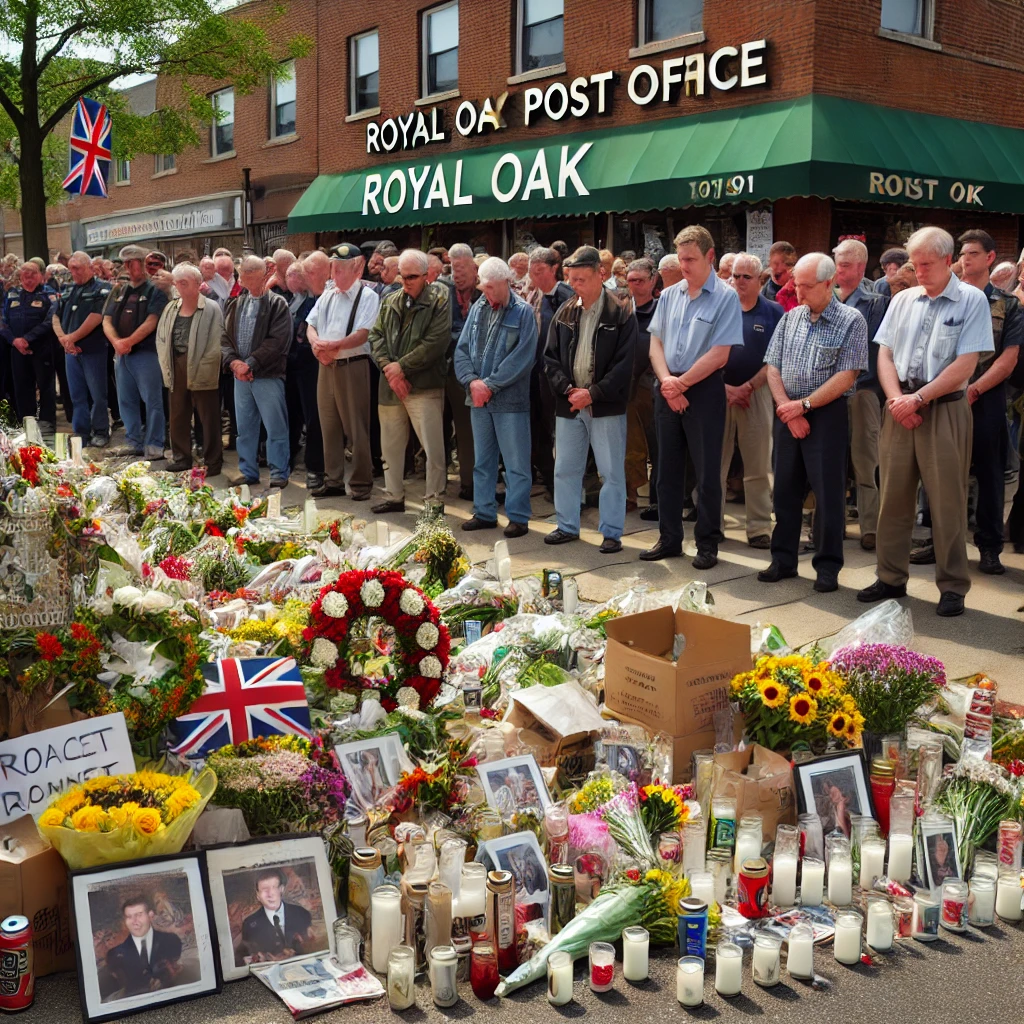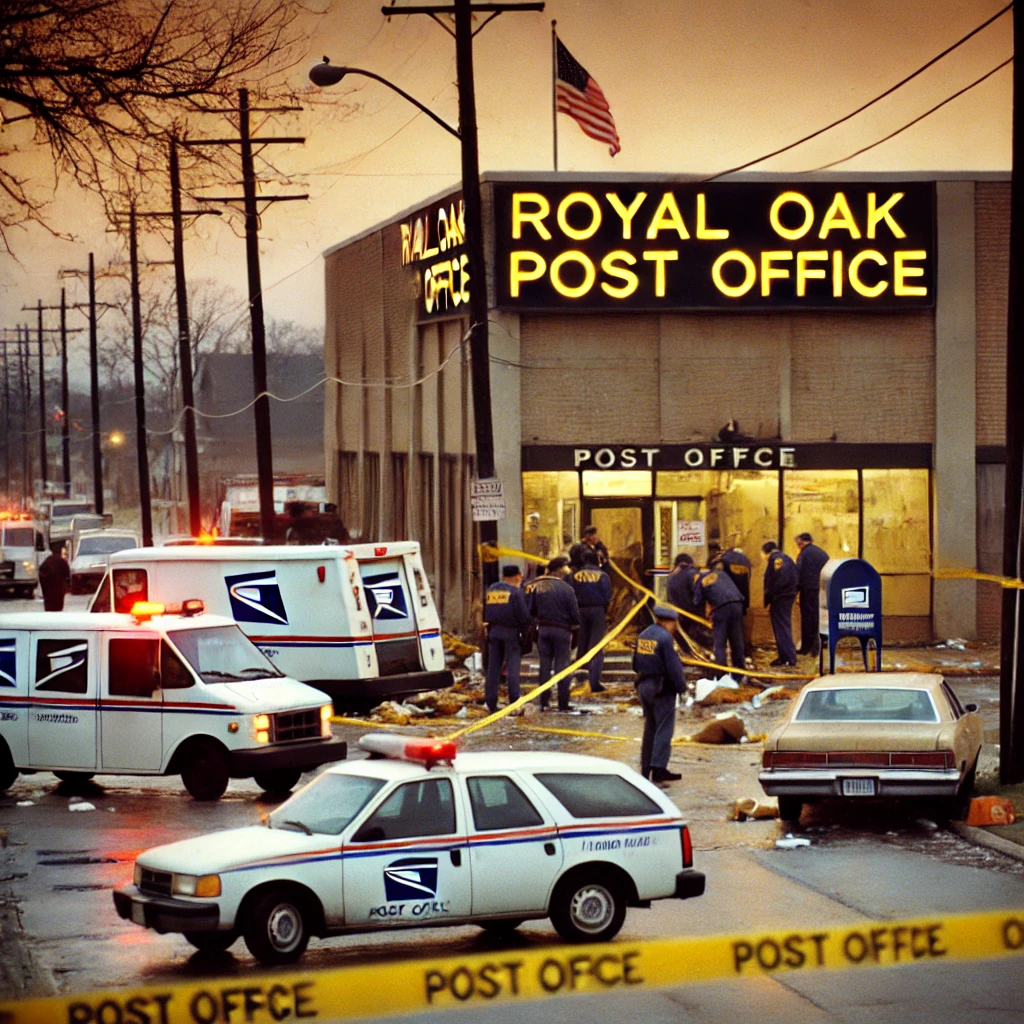On October 10, 1991, a horrific incident unfolded in Royal Oak, Michigan, when a former postal worker, Mark W. O’Connor, committed one of the most shocking mass murders in American history. The tragic event, which claimed the lives of four individuals and left several others wounded, sent shockwaves through the community and raised urgent questions about workplace violence, mental health, and gun control in the United States.

The Build-Up to the Tragedy
Mark O’Connor had previously worked for the United States Postal Service (USPS) but had been dismissed from his position due to ongoing performance issues. Reports indicate that he had struggled with personal and professional challenges, including feelings of resentment and alienation. After losing his job, O’Connor’s mental health deteriorated, and he exhibited increasingly erratic behavior.
On that fateful day, armed with a semi-automatic rifle, O’Connor entered the Royal Oak post office where he once worked. The facility was bustling with activity as employees went about their daily tasks. O’Connor’s actions that day were premeditated, fueled by his grievances against the postal service and his former colleagues. He opened fire indiscriminately, creating chaos and fear within the workplace.

The Devastating Attack
O’Connor’s attack left a profound impact on the victims and their families. Four individuals were killed in the shooting: three postal workers and a visiting contractor. In addition to the fatalities, several others were injured during the rampage, and witnesses were left traumatized by the horrifying events they had just experienced. The sheer brutality of the attack shocked not only the local community but also the nation as news spread about the tragedy. Law enforcement quickly responded to the scene, and O’Connor was apprehended shortly after the shooting. His motives were investigated extensively, with authorities seeking to understand the factors that led to such an extreme act of violence. The incident reignited discussions around workplace safety and the importance of mental health support in preventing similar tragedies.
A National Conversation on Workplace Violence
The mass murder committed by O’Connor brought to light the growing issue of workplace violence in the United States. Prior to this event, instances of mass shootings had already raised concerns about gun control and mental health awareness. The Royal Oak shooting added to a troubling trend that would continue to escalate in subsequent years. In the wake of the tragedy, many organizations began to re-evaluate their policies regarding workplace safety and violence prevention. Employers recognized the need for robust training programs to help staff identify warning signs of potential violence and to create a culture that prioritizes mental health support. Discussions around mental health in the workplace became more prominent, emphasizing the importance of addressing employee well-being and providing resources for those in need.
The Legal and Societal Impact
Following the Royal Oak shooting, O’Connor was charged with multiple counts of murder and attempted murder. The legal proceedings highlighted the complexities of dealing with mental health issues within the context of violent crime. O’Connor’s case served as a focal point for discussions about the legal system’s role in addressing mental health and ensuring public safety. The shooting also intensified debates around gun control laws in the United States. Advocates for stricter gun regulations argued that measures needed to be implemented to prevent individuals with a history of violence or mental health issues from obtaining firearms. The tragedy became part of a broader national conversation about the responsibility of lawmakers to address gun violence and its roots.

A Lasting Legacy
The mass murder committed by Mark O’Connor remains a tragic reminder of the potential for violence that can arise from personal turmoil and unresolved grievances. The incident in Royal Oak, Michigan, has been etched into the collective memory of the community and serves as a call to action for improving mental health resources, workplace safety, and gun control measures. As discussions around workplace violence and mental health continue to evolve, the lessons learned from this tragic event underscore the importance of prevention, awareness, and community support. The Royal Oak shooting highlighted the need for collective efforts to address the underlying issues that contribute to violence and to create safe environments for all individuals.
Conclusion
The tragic mass murder committed by a former postal worker on October 10, 1991, left an indelible mark on the community of Royal Oak, Michigan, and the nation as a whole. It served as a catalyst for important conversations about workplace safety, mental health, and gun control, emphasizing the need for comprehensive approaches to prevent similar tragedies in the future. As we remember the victims and their families, we are reminded of the ongoing responsibility to create supportive environments that prioritize mental well-being and public safety. The legacy of this heartbreaking event continues to influence discussions on how to combat violence and ensure the protection of individuals in all aspects of life.
